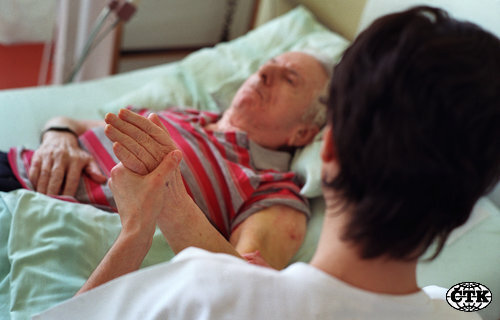
Britain's
Society for the Protection of Unborn Children (SPUC) once again held their annual national conference, providing their Director, the ever-dramatic John Smeaton, a chance for relativity. In the 43 years since abortion was made legal in Britain,
he says, more "unborn children" have been killed than during WWII.
He said about 55 million people were killed during the 1939-45 war but that 57 million unborn children have been killed since 1967 in Britain and the United States of America alone.That total does not include unborn children killed via drugs that can cause abortions or embryonic stem cell research or so-called medical cloning.Some "70 years on we're not fighting Nazi tyranny but the tyranny of politicians who promote legislation worldwide that destroys the lives of unborn children," he told delegates.
Don't the Nazi references these past few weeks seem ubiquitous? (I wonder what social scientists are saying about the prevalence of Hitler, Holocaust, and fascist comparisons in contemporary society.)
But that's not all Smeaton had on his mind. He wants to protect you from the raging euthanizers:
Smeaton told the participants that they also have to be on their guard to protect human life at the end of the spectrum."Neither can we ignore widespread killings through euthanasia, not least in Britain, where the government's silent euthanasia policy is clearly taking a grip throughout the country," he said.
We've been made fully aware of the battle that is to come here in the US regarding assisted suicide thanks to public and political discourse regarding health care reform, and other events in the news including the recent court case in Montana that could declare assisted suicide constitutional, the euthanization charges coming out of New Orleans from Katrina, and accusations that Michael Jackson was assisted to suicide.
The rest of the world is now having the same conversations we are about assisted suicide. In Britain,
Debbie Purdy, a multiple sclerosis patient, was awarded the right to end her life. Earlier in the year, Italy experienced a public discussion about end of life rights when
Eluana Englaro, a patient in a persistent vegetative state since 1992 and dubbed Italy's Terri Schiavo, was allowed to die by the courts. While a bill to legalize assisted suicide in Czechloslovakia was defeated last fall, a new report that accuses Czech hospitals of
sedating patients to death has renewed the debate.
Around the world, as medical advancements are made and larger populations face artificial prolongment of life, end of life issues are being defined by voters, governments, and courts.
Smeaton's organization has responded to the "growing threat" by forming Patients First Network. Writes LifeSite's Steven Ertelt:
The SPUC leader's address came just days after a group of experts in care for the terminally ill wrote to the Daily Telegraph claiming that the Liverpool Care Pathway (LCP) can lead to fluid and drugs being withdrawn, resulting in a premature death. They said some patients put on continuous sedation until they pass away under the NHS guidelines are wrongly judged as close to death.
Smeaton said this was just "the tip of the iceberg" in relation to euthanasia practices in hospitals.Alison Davis, the national coordinator of SPUC's disability rights division No Less Human, told the conference that the guidance was "very disturbing."
She said: "Some people are not dying naturally - they are being pushed into death. They are having food and fluid withdrawn."
The Daily Mail, a popular UK newspaper, recently featured the experience of Felicity Smart , whose neighbor, though relatively healthy, died after three days under the LCP. Smart challenged the nurses and doctors over her neighbor's care, but was unable to save her life.SPUC's Patients First Network (PFN), which helps patients and their advocates fight euthanasia supported Mrs Smart.PFN, which is available to help anyone concerned about relatives or friends under threat from euthanasia, recently help save the life of a man with learning difficulties in a west country hospital.
Under the definitions espoused by SPUC and other national and international "pro-life" organizations, a "natural death is a prolonged death where sedation cannot be used and artificial means of extending the "life" of the body beyond the life of the mind or consciousness or even the will to live are defended.
These organizations are extending their anti-abortion networks and resources to address what they consider a new front in the culture wars. But, as is clearly demonstrated in the US, who are the allies and who are the opponents is not yet clearly defined. Once pro-choice women yelled in the streets for the government to keep its hands off their body, now "pro-life" advocates like Minnesota congresswoman
Michelle Bachman are demanding the same regarding health care reform and euthanasia, unless the government, of course, comply with conservative positioning (as with the Terri Schiavo case). New lines, new definitions of life, new allies, and new resources.
The global battle for a good, legal death has begun.
Labels: assisted suicide, euthanasia


